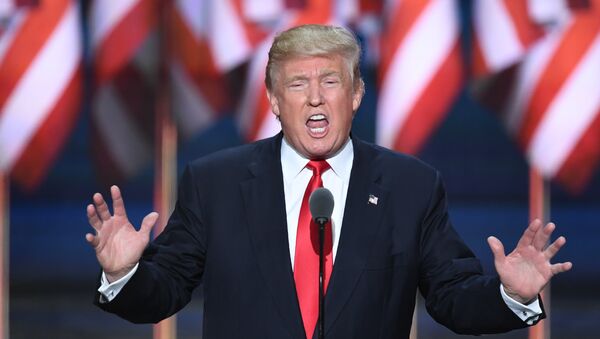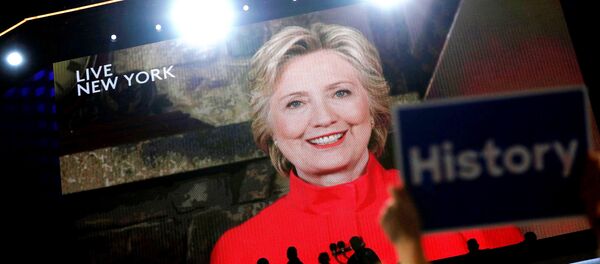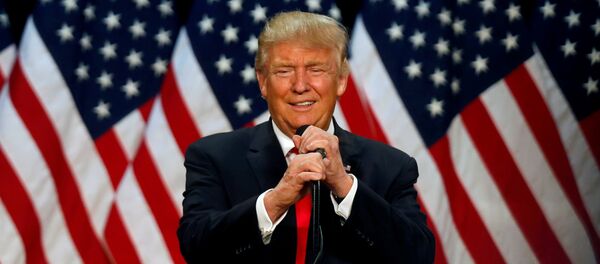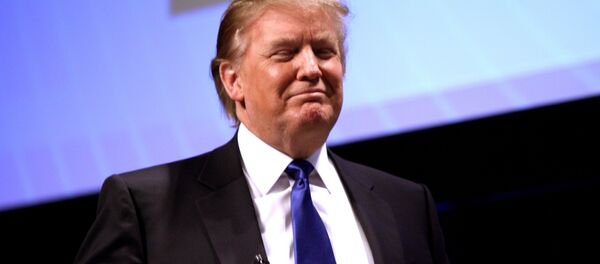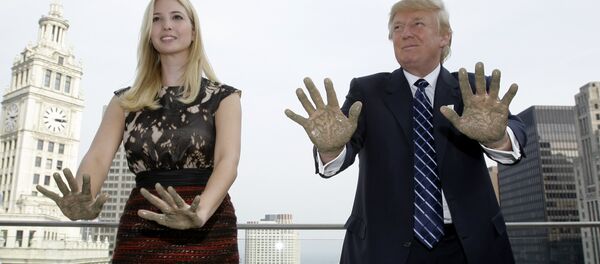On Monday, Trump blamed the rise of Daesh, also known as IS/Islamic State, on the "policy decisions made by President Barack Obama and Secretary of State Hillary Clinton." Without offering specifics, the billionaire proffered a general overview of how he would improve global security.
"If I become president, the era of nation-building will be brought to a very swift and decisive end," he said. "Our new approach…must be to halt the spread of radical Islam. All actions should be oriented around this goal, and any country who supports this goal will be our ally."
He said that he would call for an "international conference" to focus address this goal with partners in the Middle East, including Israel and Jordan.
Trump also stressed that his administration would "find common ground with Russia in the fight against ISIS. Wouldn’t that be a good thing?"
This international partnership would focus on intelligence sharing, cyberwarfare to disrupt the terrorist group’s recruiting abilities, and cutting off the group’s funding.
While Trump previously described NATO as "obsolete," his most recent speech seemed to reverse this claim.
"We will work closely with NATO on this new mission. I had previously said that NATO was obsolete because it failed to deal adequately with terrorism; since my comments they have changed their policy and now have a new division focused on terror threats."
Trump claimed in June that his comments led NATO to create a new position of assistant secretary general for intelligence. The military alliance observed that this was in the works long before Trump’s criticism.
The reported billionaire also reiterated debunked claims that he was against the Iraq War from the beginning, adding that the United States should have kept control of the country’s oil supply after the invasion.
"In the old days, when we won a war, to the victors go the spoils," he said. "Instead, all we got from Iraq and our adventures in the Middle East was death, destruction, and tremendous financial loss."
Money gained from Iraq’s oil could have been used to cover war costs, Trump said, and would have prevented Daesh from profiting from oil.
A Trump administration, according to the candidate, would continue the drone strikes of the previous two administrations, but would put a renewed interest on human intelligence.
The detention center at Guantanamo Bay would remain open, and foreign combatants would be tried in military commissions.
Domestically, Trump reiterated his call for a ban on immigration from "some of the most dangerous and volatile regions of the world that have a history of supporting terrorism." He also referred to a Cold War-era ideological screening test that should be updated for Islam, as part of a process he called "extreme vetting."
The US State Department and Department of Homeland Security, in his view, would be tasked with identifying parts of the world where adequate screenings could not be realistically conducted. Immigration from these regions would be "temporarily" suspended.
As his first act as president, Trump said he would create a commission on radical Islam that would explain to the American public details about radicalization and would establish new protocols for local authorities and immigration screeners.
Domestic terror support networks will be "stripped out," he said, "viciously, if necessary."

